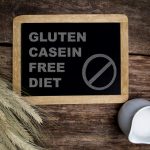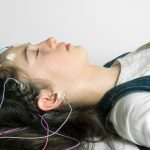 Today is the 9th annual World Autism Awareness Day. It’s a time where the world comes together to increase understanding and acceptance for those living with autism and to learn about autism treatment and therapy. Here at Bel Marra, we are committed to bringing our readers the most relevant information on all health topics, and to celebrate this great cause, we have compiled a list of informative articles touching on autism spectrum disorders, stomach disorders associated with autism, and epilepsy.
Today is the 9th annual World Autism Awareness Day. It’s a time where the world comes together to increase understanding and acceptance for those living with autism and to learn about autism treatment and therapy. Here at Bel Marra, we are committed to bringing our readers the most relevant information on all health topics, and to celebrate this great cause, we have compiled a list of informative articles touching on autism spectrum disorders, stomach disorders associated with autism, and epilepsy.
Autism, schizophrenia, ADHD, and bipolar disorder risk in kids may be linked to older dads: Study
Autism, schizophrenia, ADHD, and bipolar disorder risk in kids may be linked to older dads, according to research. American and Swedish researchers analyzed data from over 2.6 million Swedes. Men who fathered children after the age of 24 faced higher risks of having children with psychiatric problems or academic difficulties. The greatest risk was seen in men who fathered children after the age of 45.
Advertisement
The results reveal that men’s sperm isn’t immune to the effects of age, as previously believed. Although the study did show higher risk of psychiatric disorders associated with older fathers, it was found to be quite small.
Academic difficulties were more common than psychiatric problems, but they did not affect all children who had older dads. Continue reading…
 Gluten-free casein-free (GFCF) diet ineffective for autism treatment: Study
Gluten-free casein-free (GFCF) diet ineffective for autism treatment: Study
Over the last decade, the gluten-free casein-free (GFCF) diet has become a popular option for autism treatment, but a comprehensive U.S. study has concluded that it has no real impact on a child’s behavior.
The study, conducted at the University of Rochester Medical Center (URMC), followed a group of children between two and five years old over 30 weeks and implemented a strict gluten-free, casein-free diet for each child. Foods were slowly reintroduced as the children’s attention, activity, sleep patterns, and bowel movements were monitored. As it turns out, there were no changes when the kids were given foods with gluten, casein, a combination of gluten and casein, or a placebo. Continue reading…
 Autism doesn’t increase risk of stomach disorders
Autism doesn’t increase risk of stomach disorders
A new study found that children with autism are not at a higher risk for stomach disorders compared to those without autism. The study focused on stomach problems that have been previously linked to autism, such as intestinal inflammation, deficiency of lactase, and leaky gut—an increased intestinal permeability.
The findings revealed that autistic children were not at a higher risk for these stomach disorders compared to children without autism. Continue reading…
 Epilepsy affects nearly 30 percent of patients with autism spectrum disorder (ASD)
Epilepsy affects nearly 30 percent of patients with autism spectrum disorder (ASD)
Epilepsy affects nearly 30 percent of autism spectrum disorder (ASD) patients. On the other hand, many patients with epilepsy display ASD-like behavior. Studies have shown that epileptic seizures impair the neural pathways required for socialization, but the details of this process are unknown.
Four studies have investigated the in-depth relationship between epilepsy and ASD, revealing biological mechanisms that could aid in treatment for patients with both disorders.
Researchers examined the electroencephalogram (EEG) videos and records of 53 children and adults diagnosed with ASD and epilepsy. There were 50 abnormal EEG videos in the 53 cases studied. The videos indicated that 40 percent of the patients had focal epilepsy, 30 percent had generalized epilepsy, 25 percent had both focal and generalized epilepsy, and five percent had an unclear diagnosis. Continue reading…
 Autism risk in children increased when antidepressants taken during pregnancy
Autism risk in children increased when antidepressants taken during pregnancy
Advertisement
Researchers have found an increased autism risk in children whose mother has taken antidepressants—specifically selective serotonin reuptake inhibitors—within the last two trimesters of pregnancy.
Antidepressants are used to treat depression, and autism spectrum disorder is a neurodevelopmental syndrome involving altered communication, language, and social interaction.
Researchers explored data of pregnancies and children in Quebec between 1998 and 2009. The authors identified 1,054 children with autism from 145,456 births. Age of onset for autism was roughly 4.6 years old, and there were four times as many boys with autism than girls. Continue reading…
